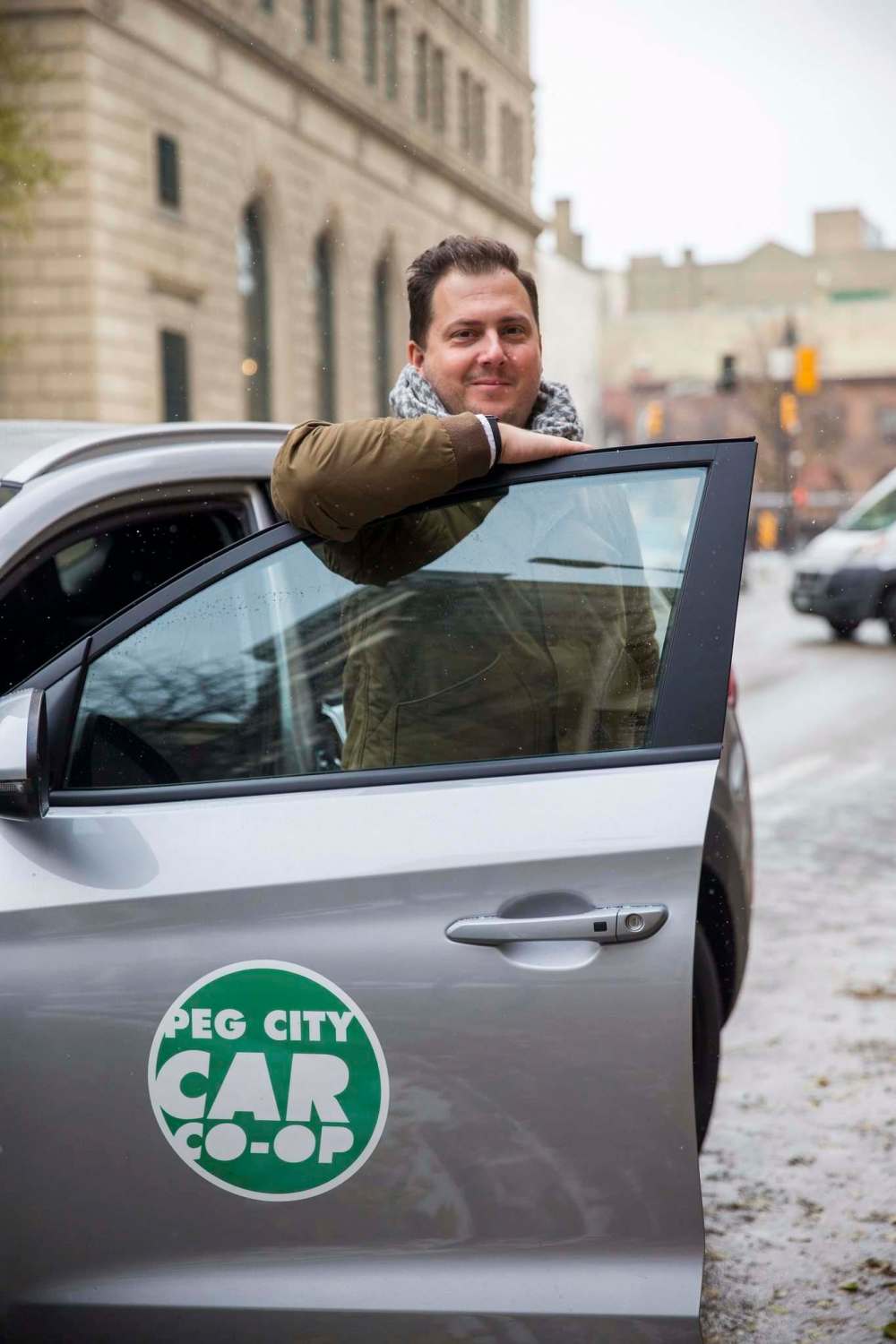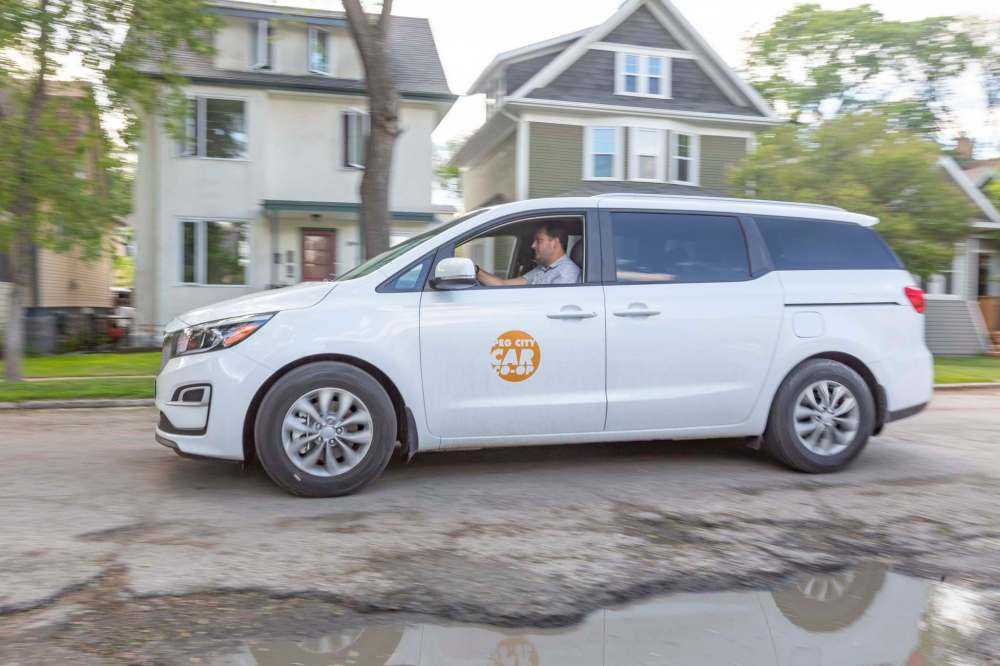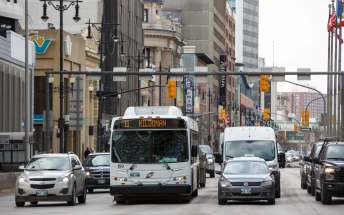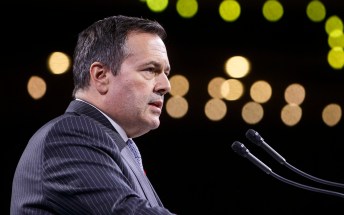Car Co-op grows memberships, expands fleet
Read this article for free:
or
Already have an account? Log in here »
To continue reading, please subscribe:
Monthly Digital Subscription
$0 for the first 4 weeks*
- Enjoy unlimited reading on winnipegfreepress.com
- Read the E-Edition, our digital replica newspaper
- Access News Break, our award-winning app
- Play interactive puzzles
*No charge for 4 weeks then price increases to the regular rate of $19.00 plus GST every four weeks. Offer available to new and qualified returning subscribers only. Cancel any time.
Monthly Digital Subscription
$4.75/week*
- Enjoy unlimited reading on winnipegfreepress.com
- Read the E-Edition, our digital replica newspaper
- Access News Break, our award-winning app
- Play interactive puzzles
*Billed as $19 plus GST every four weeks. Cancel any time.
To continue reading, please subscribe:
Add Free Press access to your Brandon Sun subscription for only an additional
$1 for the first 4 weeks*
*Your next subscription payment will increase by $1.00 and you will be charged $16.99 plus GST for four weeks. After four weeks, your payment will increase to $23.99 plus GST every four weeks.
Read unlimited articles for free today:
or
Already have an account? Log in here »
Hey there, time traveller!
This article was published 29/10/2019 (2239 days ago), so information in it may no longer be current.
Up to 20 more cars will be rolling down Winnipeg streets within the next year, but that doesn’t mean there will be more traffic.
Peg City Car Co-op, the city’s ever-popular car-sharing service, is planning to expand its vehicle fleet by as much as 50 per cent by the end of 2020, adding hatchbacks, SUVs, trucks, and a large cargo van option to serve its growing membership: it’s the cooperative’s most ambitious expansion yet.
But the car-sharing system doesn’t add to gridlock, says Philip Mikulec, Peg City’s operations manager. In fact, he says, though it might seem counterintuitive, each vehicle in the fleet represents 13 to 15 sets of wheels taken off the road in the city, freeing up space, reducing emissions, and limiting the financial burdens of car ownership.

Car-sharing gives users the option of only paying for vehicles when they need one, and the Peg City model allows users to pick it up from designated spots across the city, returning it once they’re done for another user to drive.
Just under a decade ago, the idea of car-sharing was still a nascent one: when the car co-op started in 2011, it did so with only a few members and three cars, says Mikulec. Now, Peg City expects 2,000 members by summer 2020, and as of 2018, there were more than 336,000 car-share members nationwide, according to Movmi, a shared mobility agency.
“It feels like we have the wind at our backs,” Mikulec said. “It’s going to be a big year for us.”
And the winds must be gusting pretty fast, because Peg City has set lofty goals that Mikulec says are entirely realistic based on the way the co-op has been trending in recent years.
In 2016, when Mikulec was hired on, the co-op had about 700 members, a figure which has more than doubled in the time since; over the last 16 months, the company has easily surpassed its membership growth goals. As well, the co-op has raised over $300,000 in shares owned by members, with more than $600,000 raised through investor shares, and is planning on doing another sale of non-member shares in the coming months.
Investors play a key role in the business model, and receive a 40 per cent community economic development tax credit, which they receive regardless of tax liability, Mikulec said.
That sustained growth, combined with the capital available, gave the co-op the confidence to seek a major expansion: not only are additional vehicles being added to the fleet, but new neighbourhoods will be serviced as well, if all goes according to plan. Mikulec said the North End—specifically the St. Johns and Luxton neighbourhoods—as well as the Daniel Macintyre and St. Matthews neighbourhoods in the West End are being sussed out based on high usership numbers.

In addition to the individual members, the co-op also services corporate clients, who pay a higher monthly fee ($50) paired with unlimited drivers and the lowest available base rate ($3 per hour). Non-profits are also now able to pay that base rate, and the co-op has waived the $50 monthly fee to boost accessibility and affordability.
While the forecast for Peg City appears to call for blue skies ahead, car-sharing in other major cities hasn’t been as successful of late: Car2Go, a major player, is set to cease operations in Calgary at the end of the month, leaving Cow Town without a ride-share service, movmi CEO Sandra Phillips wrote in a Globe and Mail op-ed last week.
“Car2Go (now part of Share Now, a joint venture between BMW Group and Daimler AG) also exited Toronto last year and has announced its pending exit from four U.S. cities,” she wrote. “Seattle and Portland, Ore., meanwhile, have seen the pullout in recent weeks of the ReachNow and LimePods car-sharing services.”
But James Carter, an automotive industry advisor in Toronto, says that car-sharing has been threatening to disrupt car sales for years, and some dealers and industry players are taking note.
On Oct. 22, in the U.S., Penske Corporation launched Dash, a free-floating, one-way share service run by the former Car2Go CEO, in Washington, D.C., and Arlington, Virginia. This summer, Porsche launched its Passport luxury subscription program (starting at $3,200 per month) in three American cities and Toronto.
“Those appeal to people with loads of money,” he said, not the average consumer.

Comparatively, the Peg City casual plans are as little as $4.50 per month plus hourly or per-kilometre rates. Members pay an up-front $500 deposit that’s returned when you leave, plus a $5 per hour fee with a $40 max hourly rate per day. Member+ plans cost $30 per month, and are accompanied by lower hourly fees and additional perks. The cost of fuel is covered by the co-op.
With the expected expansion, the co-op now faces a challenge the rest of the city’s drivers also face: finding parking.
Mikulec said they’ve already started looking.
ben.waldman@freepress.mb.ca

Ben Waldman covers a little bit of everything for the Free Press.
Our newsroom depends on a growing audience of readers to power our journalism. If you are not a paid reader, please consider becoming a subscriber.
Our newsroom depends on its audience of readers to power our journalism. Thank you for your support.
History
Updated on Tuesday, October 29, 2019 8:53 PM CDT: Fixes mis-spelled name.








